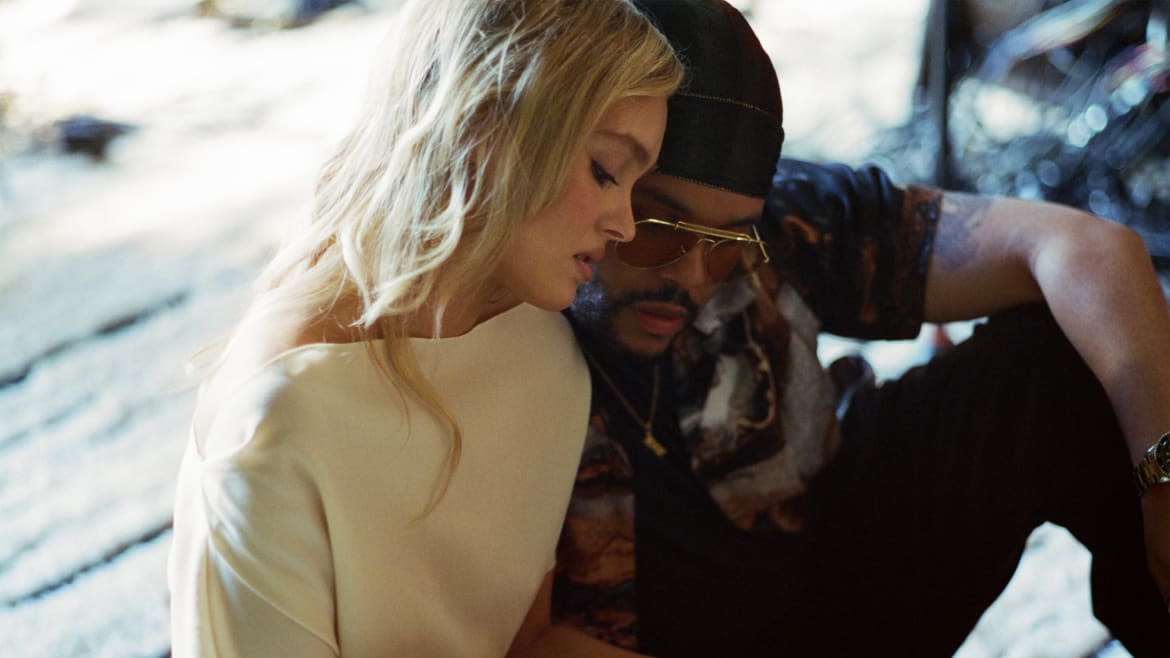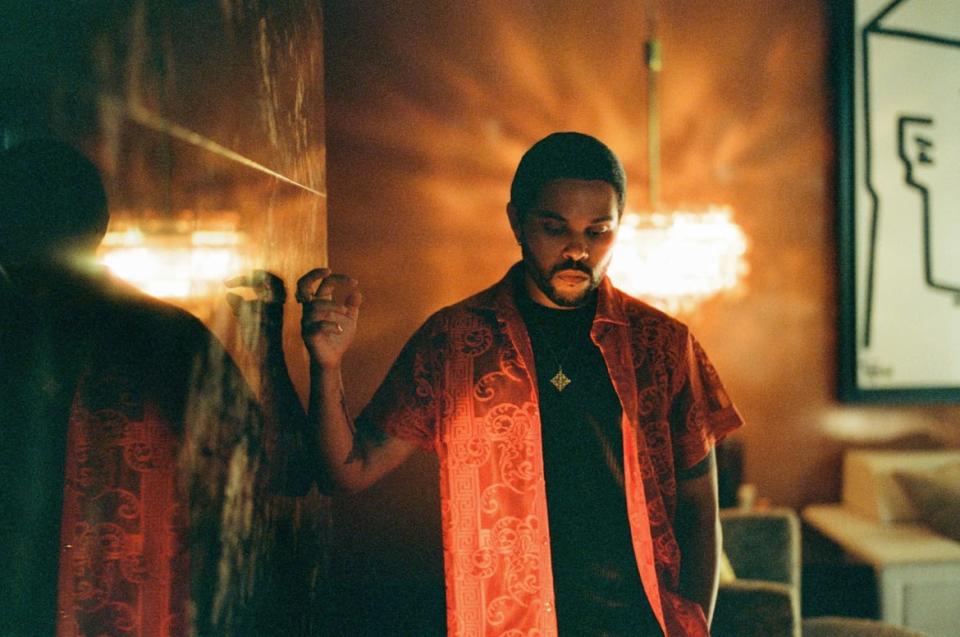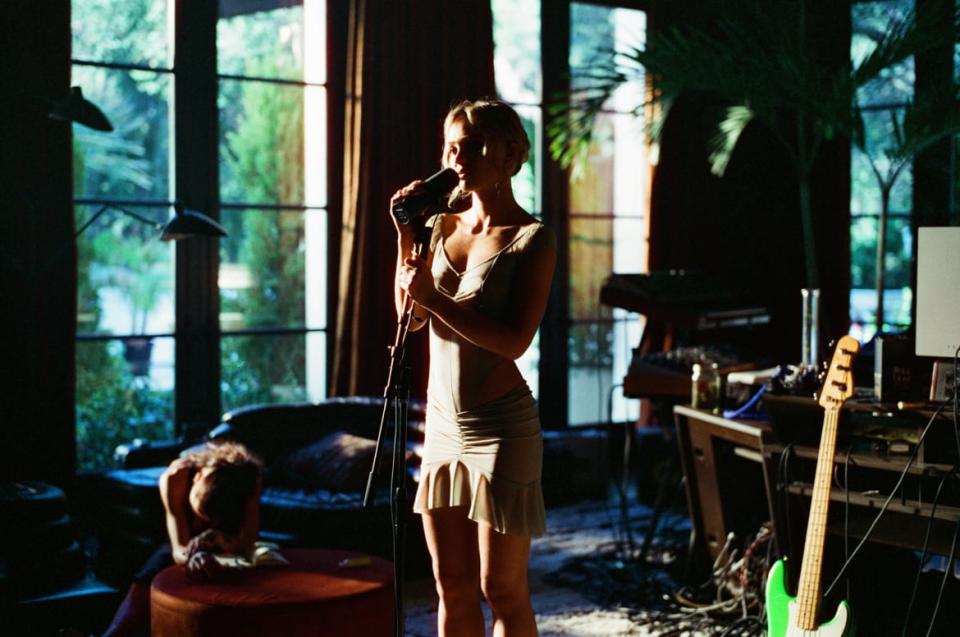‘The Idol’s’ Horrific Depiction of Rape Culture Is Shocking Because It’s So Lazy

Sam Levinson’s The Idol—at least on the basis of its first two episodes, which bewilderingly premiered at the Cannes Film Festival—is bad. But you knew that already. It was always kind of a given that Rape Culture: The Show would be a severely compromised thing, particularly after firing director Amy Seimetz (The Girlfriend Experience) and replacing her with Levinson (The Nepotism Experience).
If you were following closely you would have heard that hugely expensive reshoots followed Seimetz’s departure, reconfiguring the series entirely. That much is visible on the screen, in a story that is painfully shorn of any substance. Instead, we are given an increasingly dreary and pointless succession of music-video style shots, slow-motion sequences, and porny overheads, depicting Lily-Rose Depp in various states of undress, as her character Jocelyn struggles through her life and career.
There is nothing here. Of the series original concept—a shady mogul takes the career of a pop starlet in hand—only the bare bones remain. In the first two episodes you can just about make out that skeleton, as we see Jocelyn, who is clearly based on Britney Spears and Miley Cyrus struggle to get over the recent death of her mother and launch her new single.
Surrounded by a phalanx of varyingly well-meaning assistants, managers, and record industry figures, Jocelyn is clearly a vulnerable person, who is isolated and disempowered. One of her managers (a formidable Jane Adams, going for broke) even jokes, in the series’ opening minutes, about mental illness being sexy to the masses, because it gives them the illusion that the disturbed person might one day fuck them.

That’s a dark line to take, which doesn’t have to be a bad thing—and the series clearly takes a sort of delight in (as it sees it) “pushing the boundaries”—but the problem is that this is an early example of the show’s cowardice and bullshit, which constantly makes excuses for its worse instincts. Of course the worst of the industry’s manipulative and harmful views is handed over to women. Of course the main character is written as being sick of the intimacy coordinator who wants to protect her. Of course she professes herself as being into the rapey character played by Abel Tesfaye. It’s one thing to watch a 50-minute glorified sexploitation video clip, but couldn’t the creators own up to their kinks, rather than write them off so lazily?
There was a satirical industry framework to begin with, which might have proven effective at revealing the sleazy underbelly of entertainment. But Levinson (and you know this!) tries to have his cake and eat it, by simultaneously subverting and being the dirt that his series calls out. How else to consider a female character barely seen before, who in Episode 2 strips off for no particular reason and throws herself into a pool, filmed topless for the benefit of, presumably, a straight male audience? How else to explain Rachel Sennott’s character suddenly being given a sex scene out of nowhere, after Jocelyn finally gets down with her guru? How else to explain the constant objectifying of Jocelyn, to an extent that is not supported by the show?
The Weeknd’s New Show ‘The Idol’ Already Pissed Off the Whole Internet
An example of this: in Episode 2, Jocelyn is shooting a video for her new single, which goes awry. The video is a clear reference to Britney Spears choreography, sexualising Jocelyn to within an inch of her life—but we aren’t given the clip from the viewpoint of the video’s filmmaker. Instead, duplicitously, we are shown endless shots of Jocelyn’s performance that still sexualize her, but from a totally external viewpoint, as she rehearses the song again and again.
In these scenes, which frame her with such insistence, what if anything is being subverted? Depp can almost never be filmed in anything other than a parodically skimpy outfit in this horribly ugly show; at one point she finally turns up in a t-shirt, which had the effect of a cold glass of water after trekking through a desert.
The show’s sleaze (intentional and not) would be one thing, but it’s the hideous, self-excusing presentation of rape culture that rankles. In the series’ most disgusting scene, Tesfaye’s character—called Tedros Tedros, a moniker unfortunately reminiscent of former United Nations chief Boutros Boutros-Ghali—asks Jocelyn if she trusts him. She replies “no,” which Tedros Tedros takes as his cue to choke her whole head with a cloth, cutting an air hole for her mouth with a knife.

There would be no problem in playing with sexual ambiguity (and clearly this character is presented as being sleazy and domineering, seeking to exert power over Jocelyn not just in the bedroom). But taken together with the show’s misogyny and endlessly patriarchal outlook, it plays as a pretty wobbly endorsement of nefarious behavior. Being attracted to violence and to power-play as a sexual turn-on is not unusual, but there is a horrible blurring of lines here, which frames queasy sexual behavior as the highest of turn-ons.
On top of all this, the show becomes coy and abject when it chooses to, particularly in the way it refuses to sexualize Tesfaye to anything like the extent that female characters are. This even detracts from the series’ intent, since Tedros Tedros is supposed to hold an immense sexual charisma. Come on then, let’s see it!
When Tesfaye says to Depp, “I want to suffocate you with my cock,” and then approaches her for the aforementioned fellatio, why do we then pan away? Could it be that the audacious Sam Levinson ran out of chutzpah at just that point? The show’s unwillingness or inability to frame Tesfaye, to seize his character and objectify him by the same token as Jocelyn, totally hampers the series, and shows how disingenuous Levinson’s intentions are.

The Idol is a big, expensive mess—a glitchy collection of lazy “moments” that is sleazy in its intent. The shame here is that a veritable host of performers are wasted on this grim disaster— Adams and Sennott manage to find something like comic timing or even the hint of a character in the interstices of the show’s vulgarity—but other actors are left floundering.
A nasty, bitterly ironic, horribly unyielding version of Entourage—which this series might have been if it hadn’t been interfered with—could have really been something. As it is, audiences will have to content themselves with the sight of Depp writhing while playing her latter-day Je t’aime moi non plus for her management. Take that, industry!
Liked this review? Sign up to get our weekly See Skip newsletter every Tuesday and find out what new shows and movies are worth watching, and which aren’t.
Get the Daily Beast's biggest scoops and scandals delivered right to your inbox. Sign up now.
Stay informed and gain unlimited access to the Daily Beast's unmatched reporting. Subscribe now.

 Yahoo News
Yahoo News 
